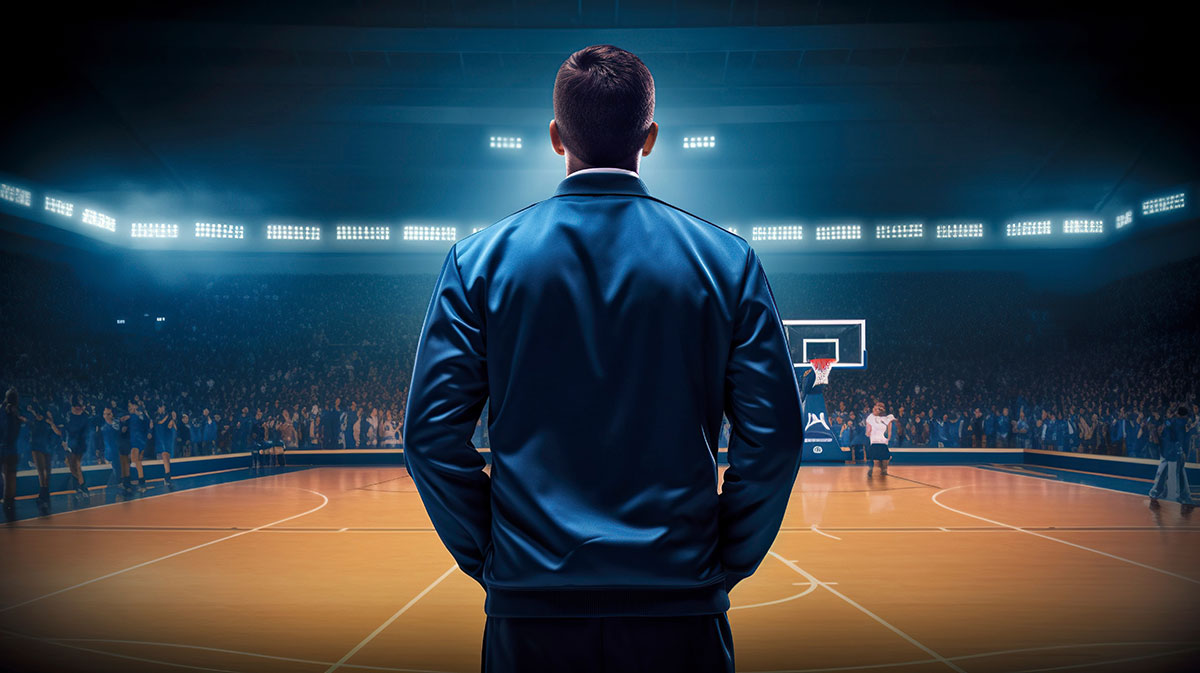When I first started coaching, I thought my main job was to teach the X’s and O’s—how to run plays, defend the pick-and-roll, and perfect a jump shot. And don’t get me wrong, those things matter. Basketball is a competitive game, and winning requires skill, preparation, and execution. But as I’ve grown in this profession, I’ve realized something far bigger: coaching is about shaping people, not just players.
For me, basketball is the vehicle. The lessons learned on the hardwood—the grit, teamwork, accountability, and resilience—are the ones that carry players long after the final buzzer. That’s what makes coaching such a powerful calling.
Beyond the Scoreboard
Every coach wants to win. It’s part of the competitive nature that drives us into this profession in the first place. But I’ve come to believe that the real scoreboard is much bigger than what the lights show in the gym.
I measure success by whether my players leave the game better equipped for life. Did they learn to handle adversity without quitting? Did they develop discipline that will serve them in their future careers or families? Did they experience what it means to be part of something larger than themselves?
These are the questions that matter to me when the season ends. Championships are great, but character outlasts banners.
The Practice Court as a Classroom
One of my favorite things about basketball is how every practice is an opportunity to teach life lessons. If a player shows up late, it’s not just about running laps—it’s about understanding accountability. If a team loses focus during a drill, it’s a reminder that small habits compound, whether on the court or in life.
I’ve seen how players start to connect the dots. The ones who show consistency in practice often become the most dependable students, employees, and leaders later on. The gym is like a lab where we get to experiment, fail, adjust, and grow together.
Leadership from Every Seat
A lot of people assume the star player is the natural leader. But in reality, leadership can come from anywhere on the roster. Some of the most impactful players I’ve coached weren’t starters at all—they were the guys on the bench encouraging teammates, setting the tone in practice, or holding everyone accountable in the locker room.
That’s why I emphasize that everyone has a role, and every role matters. In life, you won’t always be the one in the spotlight, but you can always contribute. The sooner players internalize that lesson, the stronger the team—and the individual—becomes.
Embracing Failure as Growth
One of the toughest things for young athletes is learning how to lose. Nobody enjoys it, but losses can be some of the greatest teachers if approached with the right mindset.
I tell my players all the time: failure isn’t final—it’s feedback. When you miss a free throw under pressure, that’s not a permanent mark on your ability. It’s a chance to recognize the work still to be done. When our team falls short in a big game, it’s not the end of the story, but the start of a new chapter.
If players can learn to bounce back in basketball, they’ll know how to bounce back in life—whether from setbacks in school, work, or relationships.
The Responsibility of a Coach
Coaching comes with a responsibility that I never take lightly. Every word, every decision, and every interaction has the power to shape how a young person sees themselves.
I remember my own coaches growing up—the ones who believed in me, challenged me, and sometimes pushed me harder than I wanted in the moment. Looking back, I realize they weren’t just building me as a player; they were preparing me for everything else that came after. That perspective drives how I approach every practice and game today.
My goal is for players to look back years later and say, “Coach taught me more than basketball, he taught me how to carry myself.”
A Legacy Bigger Than Basketball
When I think about the future, I don’t just dream about coaching wins or cutting down nets, though those moments are unforgettable. I think about the kind of men and women my players will become. I think about them being strong fathers, dedicated employees, or leaders in their communities.
That’s the true legacy of coaching. It’s not about the trophies we collect but about the people we send out into the world. If I can use basketball to teach lessons that make my players better humans, then I know I’ve done my job.
Final Thoughts
Basketball has given me so much—friendships, opportunities, and a lifelong passion. But the most rewarding part has been giving back through coaching. The game is more than just a sport; it’s a platform to build character, develop leaders, and prepare young athletes for whatever comes next.
Every time I step onto the court, I remind myself: this isn’t just about basketball. This is about life. And that’s what makes coaching one of the greatest callings there is.
